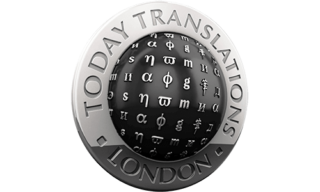The languages we speak define our identities. It is therefore unsurprising that language diversity is often one of the first flashpoints in times of political turmoil, and Spain is a classic case of this. Not that man would know from outside, though. After all, in Spain, they speak Spanish, right? Well, the answer is ‘yes and no’. While the only official language across the whole country is Castilian Spanish, there are other languages that have recognised status at a regional level (Catalan, Galician, Basque), with countless other unrecognised minority languages spread across the country.
Catalonia, in the country’s north-east corner at its border with adjoining regions of France, makes for an interesting case study for this topic; as one of the pre-eminent industrial powerhouses fuelling the Spanish economy, the passionate debate stirred up by the Castillian-Catalan imbalance has important ramifications both for local businesses and international ones seeking to operate there.
Status & Separatism
Catalonia south of the Pyrenees has been part of Spain since the 15th century, and the separatist movement has a predictably lengthy history. While Catalan has no recognised EU status, by sheer weight of numbers it eclipses by millions other official languages like Estonian, Latvian, Lithuanian, Maltese, Slovene and Irish. Spoken by some 5 million people around Barcelona, Valencia, and the Balearic Islands, (not to mention its speakers in France, Andorra, the Balearics, and the Italian town of Alghero in Sardinia), the Catalan language is an important symbol of identity.
Notable political flashpoints have centred on attempts to suppress Catalan’s vitality for the purpose of a linguistically unified Spanish state. In the 1940s and 50s, General Franco enforced many authoritarian policies, including the total suppression of Catalan being spoken by children in schools. While the Catalan language and culture survived, the trauma of these events is still keenly felt – and goes some way to explaining the prickly attitude towards preserving Catalan dominance in international centres like Barcelona. For instance, there is much local annoyance that foreigners moving into Barcelona are often content to make the effort of learning the national language but rarely do so with the local language.
A Provocative Policy?
Since 2011, the secessionist movement has become ever more fervent, and a corresponding tension over language policy has been ramped up. The Generalitat, Catalonia’s regional governing body, is tightening up its enforcement of one of the most notorious consumer laws in the country – that which states that every business has an obligation to publish all consumer information ‘at least in Catalan’. Any merchants who use the official language of Spain alone are liable to language fines – multas lingüísticas – which vary in size according to the severity of the crime, namely the size of the company and the amount and type of of information presented in Castilian Spanish alone.
Since these regulations were passed over a decade ago, a scheme for citizens to report offenders anonymously has been greeted with gusto by some fiercely proud Catalans. A 36-year old librarian by the name of Roger Seuba López made 5,000 reports against monolingual businesses in just five years. (Link in Spanish)
For those entrepreneurs who fall foul of the regulations, there are the immediate costs of the fines – financial if they are observed, criminal if they are ignored – but also secondary ones, such as the replacement of all the offensively monolingual material. For small businesses, the cost of replacing an entire shop fronting with a new bilingual equivalent is no small matter.
Both the frequency and total value of the fines have been rising year on year. In 2014, 57 businesses were fined to the tune of €51,300. 2015 saw the number of caught offenders rising to 68, with a trebling of value in the fines levied. So far in 2016, nearly 100 businesses have been subject to sanctions – an upward trend that some find worrying.Image courtesy of El País
Justified Protection or Authoritarian Overreach?
Spanish is the second most widely-spoken language in the world; Catalan, while hardly endangered, is, without doubt, a small minority language with a sensible case for protectionism. Nonetheless, many perceive these measures to be excessively totalitarian, and criticisms come from across the political spectrum.
The local branch of the right-leaning Popular Party believes that the policies violate a fundamental right to freedom of expression, while an affiliate of the liberal Ciudadanos party points out that fining people for using a given language is at odds with EU regulations on language diversity.
Yet in this case, the question of ‘rights’ is a conflicting one – many Catalans insistently prioritise their own right to buy and sell in their proud mother tongue over any other claims, and that the existence of legislated fines enshrines the superiority of this right.
Lessons For Localisers
The lessons from the language battles in Catalonia are clear for those in the language service industries. Issues of language, identity, and rights kindle the passions of people like few other subjects can. While it is possible to offer your services in the most widely spoken languages like Spanish, to do so would be to miss out on a key competitive advantage. The now famous statement of Nelson Mandela, that “If you talk to a man in a language he understands, that goes to his head. If you talk to him in his language, that goes to his heart” would certainly be a banal truism if it weren’t for internationally minded firms who fail to capitalise on the competitive advantage available by reaching out to clients in the language they feel most comfortable with. An ever-more diversified localisation strategy offers an unparalleled reward for the initial investment.

